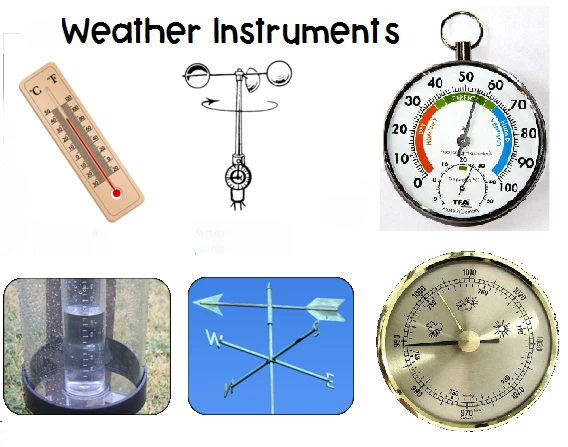
html
Weather Instruments: Essential Tools for Meteorological Observations
Weather instruments play a crucial role in gathering accurate meteorological data, enabling scientists and forecasters to predict weather patterns and study climate changes. These tools range from simple thermometers to advanced radar systems, each serving a specific purpose in atmospheric observation.
Common Types of Weather Instruments
Meteorologists rely on various instruments to measure different atmospheric conditions. Here are some of the most essential ones:
Thermometer
The thermometer measures air temperature, typically using mercury or alcohol in a glass tube or digital sensors in modern versions.
Barometer
This instrument measures atmospheric pressure, helping predict short-term weather changes. Mercury barometers and aneroid barometers are the most common types.
Anemometer
Used to measure wind speed, anemometers often feature rotating cups or propellers that spin faster with increasing wind velocity.
Hygrometer
This device measures humidity levels in the air, which is crucial for understanding precipitation potential and human comfort levels.
Rain Gauge
A simple but essential tool that measures the amount of liquid precipitation over a set period, usually in millimeters or inches.
Advanced Weather Instruments
Modern meteorology employs sophisticated instruments for more detailed observations:
Weather Radar
Radar systems detect precipitation, its motion, and intensity by sending out radio waves and analyzing the returning signals.
Weather Satellites
Orbiting satellites provide comprehensive data on cloud cover, storm systems, and other large-scale weather phenomena.
Radiosonde
These instrument packages are carried aloft by weather balloons to measure atmospheric parameters at various altitudes.
The Importance of Weather Instruments
Accurate weather instruments are vital for:
- Weather forecasting and warnings
- Climate change research
- Agriculture and farming decisions
- Aviation safety
- Maritime navigation
- Urban planning and construction
As technology advances, weather instruments continue to improve in accuracy and capability, providing meteorologists with increasingly detailed data to understand our complex atmosphere.
Keyword: wether instruments